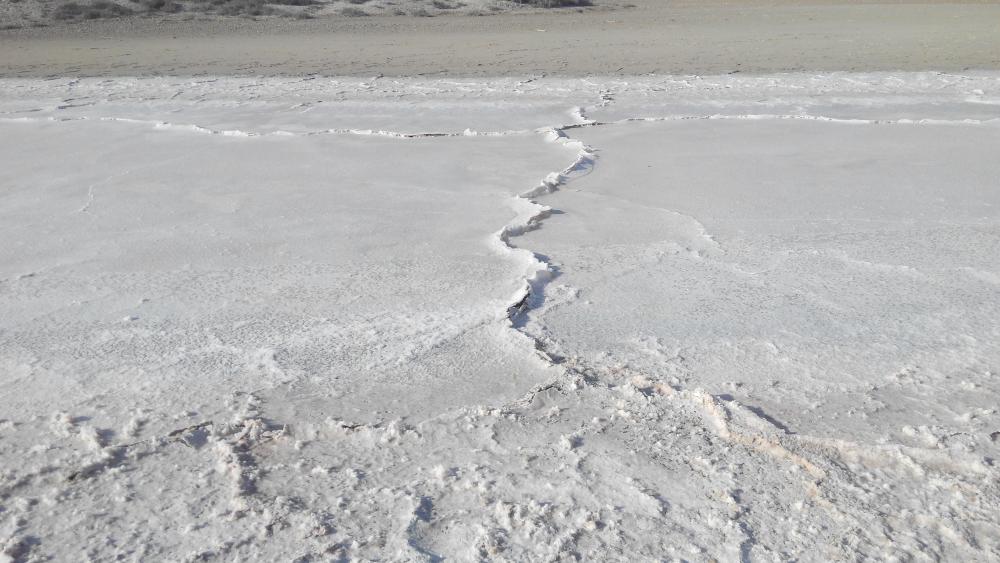
A saline pond in the "Monegros", in the Ebro valley, Aragón, Catalonia. | Foto: David Cunillera Montcusi
Human activities such as mining, intensive agriculture, water extraction and climate change are driving salt concentrations in our inland waters to higher, often unprecedented levels. Water is becoming undrinkable and unusable for industry. This might also have severe consequences for ecosystems: Loss of salt-sensitive species, spread of invasive species, alteration of nutrient cycling, changed transfer of organic matter through the food webs and increase in greenhouse gas emissions.
Despite increasing evidence of dramatic effects from salinisation, present knowledge is not enough to predict consequences of salinisation on freshwater ecosystems. To challenge this lack, a team of scientists from 10 countries joined their efforts to determine the most urgent research needs. The review paper published in Trends in Ecology and Evolution emerged within the European network project AQUACOSM-plus, which is coordinated by IGB. The research agenda presents research priorities, and aims to identify pathways for progress and stimulate interest in the global problems that will bring a saltier world and for which we need to prepare.
Stella Berger summarised the critical points: " The studies show an uneven geographical coverage of current knowledge with a clear focus on North America and Europe while neglecting regions such as Africa or South America, where salinisation drivers are particularly increasing. Most current research also neglects small freshwater habitats such as ponds, which are very important for regional biodiversity. There is little information on the impacts of different types of salinities, the consequences at regional and landscape scales, and the impacts on ecosystem-level processes such as greenhouse gas emissions or nutrient removal. Most studies focus on aquatic invertebrates while knowledge about effects of salinisation on both the bottom and the top of aquatic food webs including e.g. microorganisms, fish, reptiles and amphibians is limited."
Jens Nejstgaard added: “To address this challenge a joint effort of the scientific community, practitioners, local communities and policy makers is needed. The collaborative effort of the international team of scientists that published the review paper tries to facilitate this joint effort by targeting paths to advance as well as raising the interest for this global-scale problem that will bring a saltier world for which we must prepare.”






